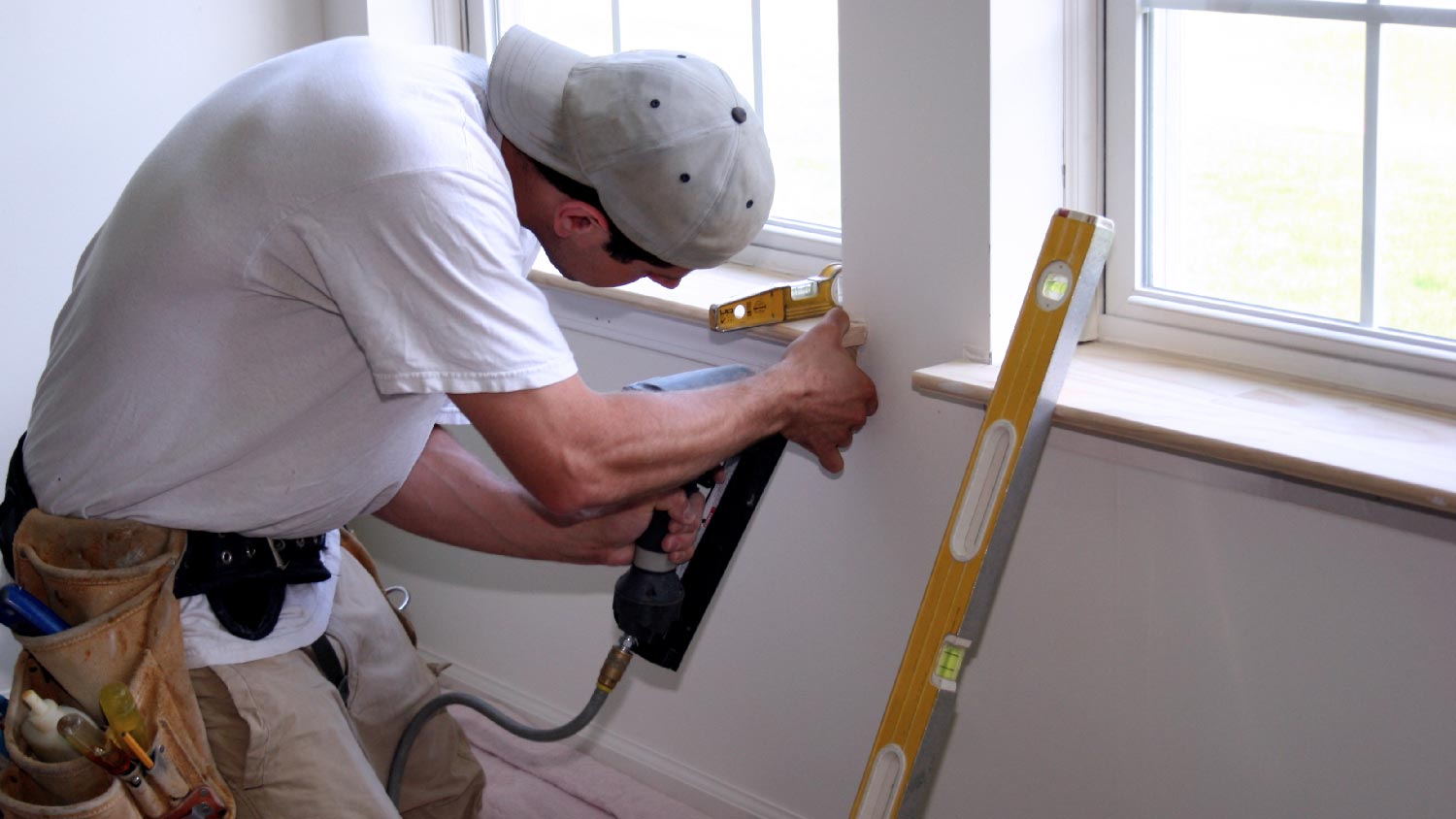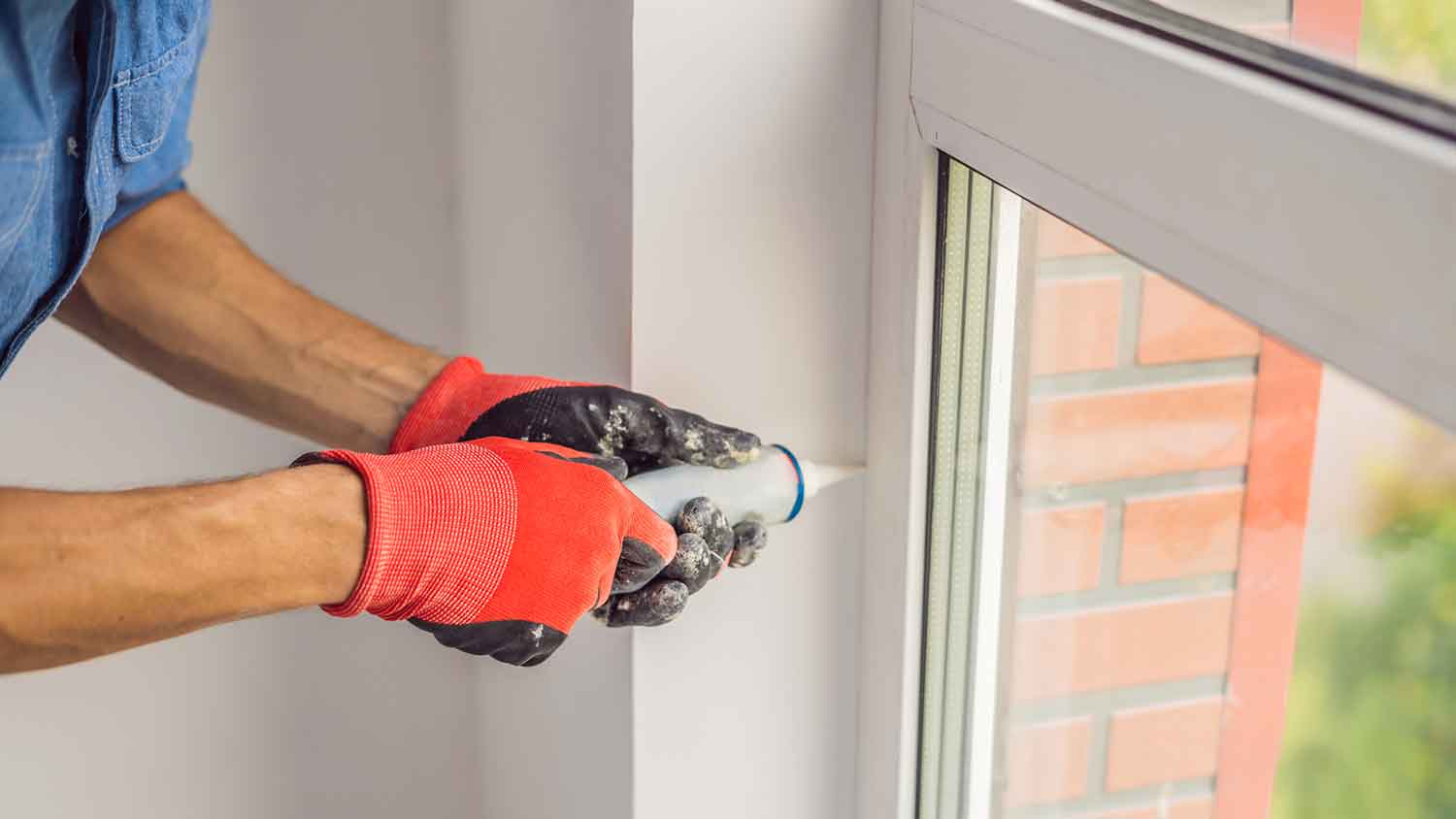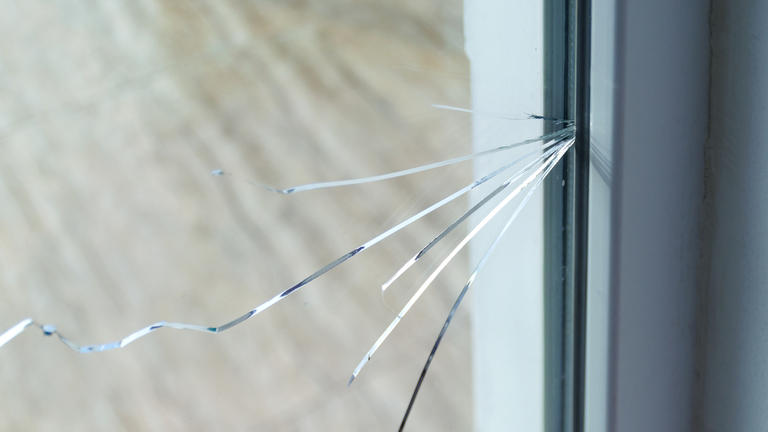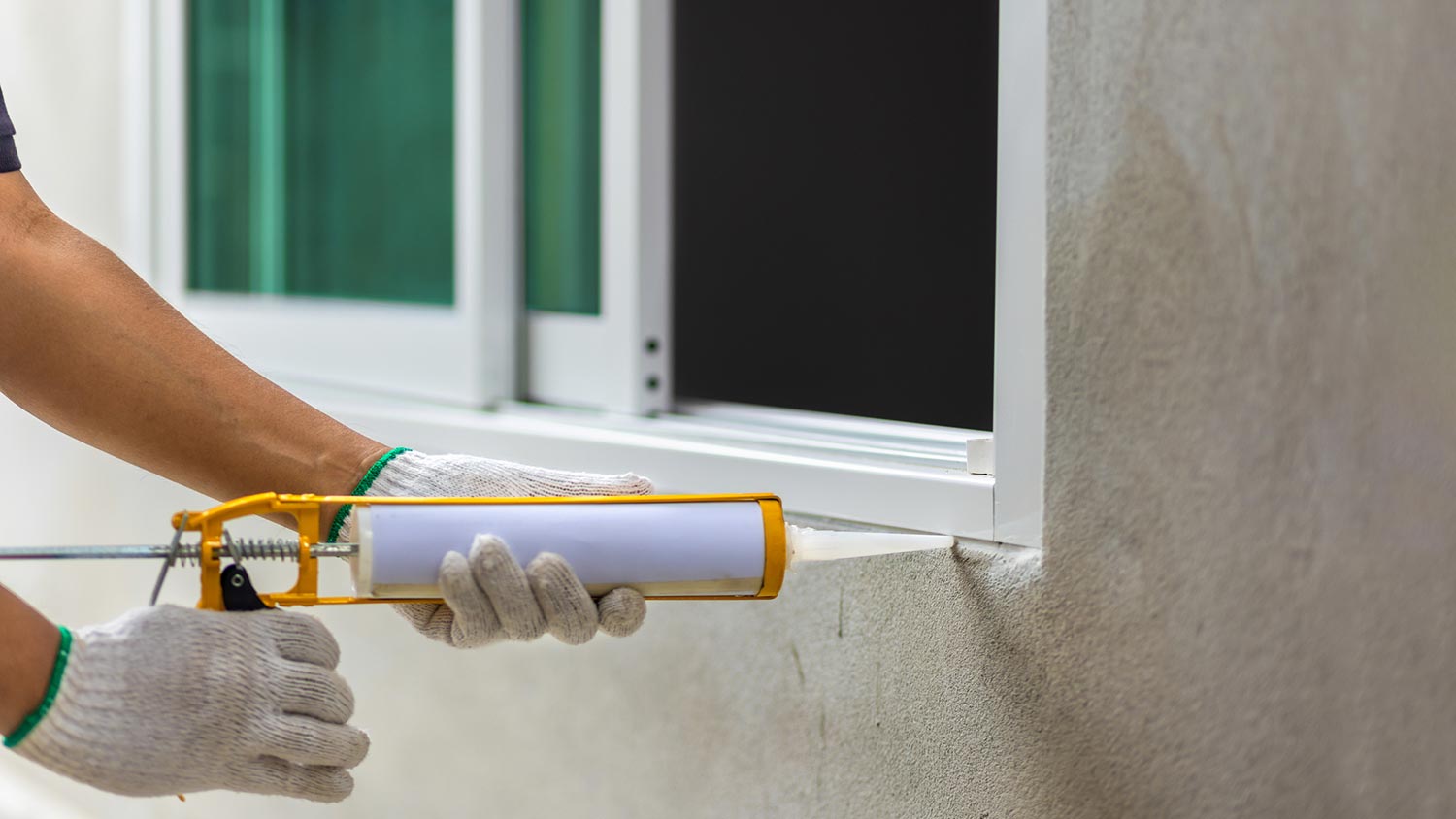
Budget for window glass replacement costs based on factors like glass type, window size, window type, glass upgrades, labor, and more.
Door or window lintel replacement costs an average of $460


Replacing lintels ensures doors and windows remain structurally sound.
Lintel replacement costs range from $280 to $640, with an average of $460.
Major cost factors include location, size, quality, and materials, which impact per linear foot pricing.
Timely repairs prevent more extensive structural damage and maintain home value.
This article was created using automation technology and thoroughly fact-checked and edited by HomeAdvisor Editor Ryan Noonan.
Keeping the lintels over your doors and windows in good shape is key to your home’s structure. Most homeowners spend about $460 on a replacement, with typical bills landing between $280 and $640 but sometimes as low as $200 or as high as $800. Your final price depends on factors like location, size, quality, and the rate per linear foot. Because lintels can wear out every few decades, schedule routine inspections and set aside a maintenance budget to avoid bigger structural headaches later.
How much you’ll pay to replace your door or window lintel depends on several essential factors, including labor and your wall or lintel’s existing condition.
Your pro will first assess the condition of your wall to determine how difficult it will be to access and remove the lintel. They'll check for any cracks or structural issues that might require additional repairs, which could increase your overall costs.
Your pro will also inspect the current condition of your door or window. If there are issues or damages, it might add to the overall cost of the project, as additional repairs or adjustments could be needed.
If your lintel is sagging or has significant deterioration, it could make the replacement more complex and increase the total cost. Severe damage might require extra care during removal and installation.
You can expect to pay between $45 and $60 per hour for a professional to replace your lintel. If you're replacing a brick lintel, a local brick mason will charge an average of $70 per hour. The final labor cost depends on who you hire and the specifics of your project.
Here’s a breakdown of how much a lintel replacement will cost on average by material.
| Material | Cost per Linear Foot |
|---|---|
| Brick | $25–$45 |
| Concrete | $20–$40 |
| Steel | $30–$60 |
| Wood | $15–$35 |
If your opening is under three feet, a brick lintel can do the job while matching the surrounding wall. Expect to pay about $25 to $45 per linear foot for a replacement.
Concrete lintels handle heavier loads and adapt to almost any size or shape. They’re a durable pick for coastal or humid regions. Plan on spending $20 to $40 per linear foot.
Steel lintels tackle wide openings and heavy loads with ease. They resist rust and erosion, so you’ll likely replace them less often. Budget $30 to $60 per linear foot.
Wood lintels—usually oak, hickory, or walnut—deliver a classic look and often show up in older homes. Replacements run about $15 to $35 per linear foot, depending on the species you choose.
Swapping out a lintel looks simple, but it’s safer to let a pro handle the heavy lifting. The beam supports part of your wall, and a misstep can turn into a far costlier repair. Pros arrive with the right gear, know how to shore up the opening, and finish the job quickly. Hiring a door or window repair pro keeps your project safe, code-compliant, and stress-free.
No place is more important than your home, which is why HomeAdvisor connects homeowners with local pros to transform their houses into homes they love. To help homeowners prepare for their next project, HomeAdvisor provides readers with accurate cost data and follows strict editorial guidelines. After a project is complete, we survey real customers about the costs to develop the pricing data you see, so you can make the best decisions for you and your home. We pair this data with research from reputable sources, including the U.S. Bureau of Labor Statistics, academic journals, market studies, and interviews with industry experts—all to ensure our prices reflect real-world projects.
From average costs to expert advice, get all the answers you need to get your job done.

Budget for window glass replacement costs based on factors like glass type, window size, window type, glass upgrades, labor, and more.

Who replaces window sills? Learn when to hire a window repair company vs. a handyperson or carpenter and what affects cost

Who to call for window leak repair? Learn which pro fixes leaky windows, repair steps, and costs so you can hire with confidence

Wondering who to call to fix an egress window? Learn whether to hire a window repair specialist, general contractor, or handyperson and what they do.

Who do you call to fix a broken window? Learn whether to hire a window repair team or a handyperson, how pros work, and what affects cost.

Who to hire to caulk windows? Compare a window repair team vs. handyperson, see what pros do, and learn the typical rates for pros.